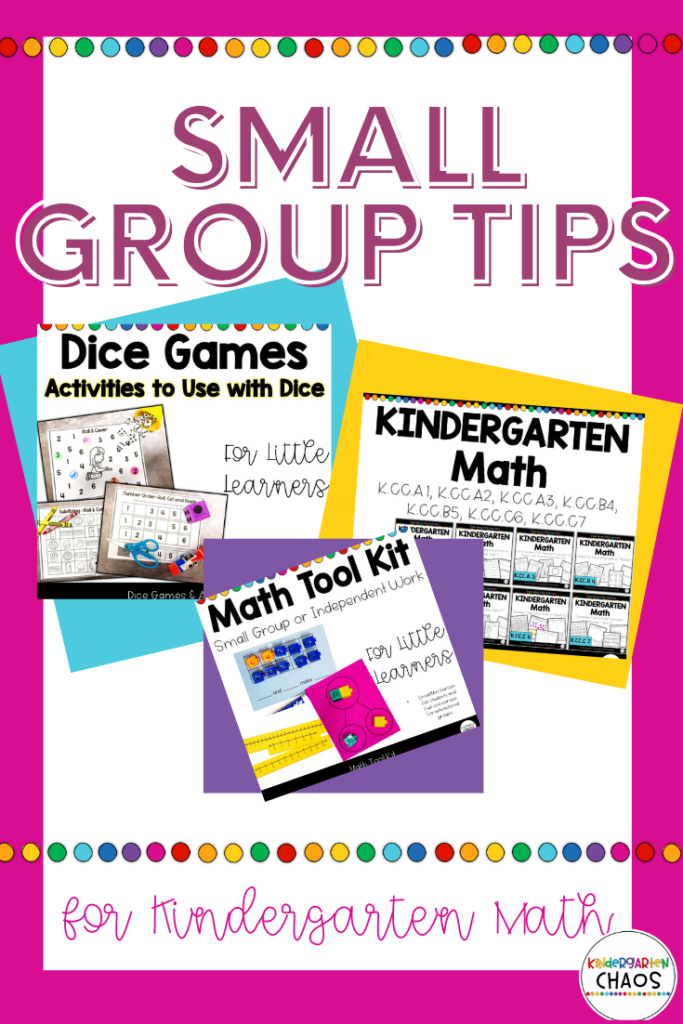Small groups are an ideal method for evaluating, reteaching, differentiating, and reinforcing math skills for our kindergarteners. This is an essential component of our academic day. Here are my Small Group Tips for Kindergarten Math that you won’t want to miss.

Small groups are an effective approach for evaluating, reteaching, differentiating, and reinforcing math skills among kindergarteners. This method not only caters to the diverse learning needs of little learners but also fosters a more engaging and interactive learning environment.
Assessment
Begin by assessing the individual skill levels of your students. Use simple assessments or observations to identify which areas each student excels in and where they may need additional support. This information will guide your groupings and instructional focus. (Assessments In Kindergarten)
Flexible Grouping
Organize small groups based on skill levels, interests, or learning styles. Be flexible with these groups, allowing your little learners to move between them as they progress. This ensures that each student is challenged appropriately and can receive the support they need.
Focused Instruction
When working with small groups, tailor your instruction to target specific skills or concepts. Use hands-on activities, visual aids, and interactive games to keep your students engaged while reinforcing the math skills they need to master.
Activities
Rotate activities within small groups to address different learning modalities. Include games, manipulatives, storytelling, and technology to make math learning dynamic. This variety will help maintain your students’ interest and cater to different ways of learning. (Small Group Math Activities For Little Learners)
Monitor Progress
Regularly monitor the progress of each group and individual student. Use informal assessments, observations, and student work to gauge understanding and make necessary adjustments to your teaching strategies.
Encourage Peer Learning
Foster a collaborative environment where your kindergartners can learn from one another. Allow them to explain their reasoning, share strategies, and support each other in problem-solving. This peer interaction can enhance understanding and build confidence.
Set Clear Objectives
Clearly outline what you hope to achieve in each small group session. Share these objectives with your students so they understand the purpose of the activities and can focus on their learning goals.
Positive Atmosphere
Ensure that your small group sessions are a safe and supportive space for all of your students. Encourage a growth mindset by celebrating mistakes as learning opportunities and praising effort and persistence.
By implementing these small group tips in your kindergarten math instruction, you can create a more effective and enjoyable learning experience for your little learners. This approach not only supports their academic growth but also nurtures a love for math that can last a lifetime.




